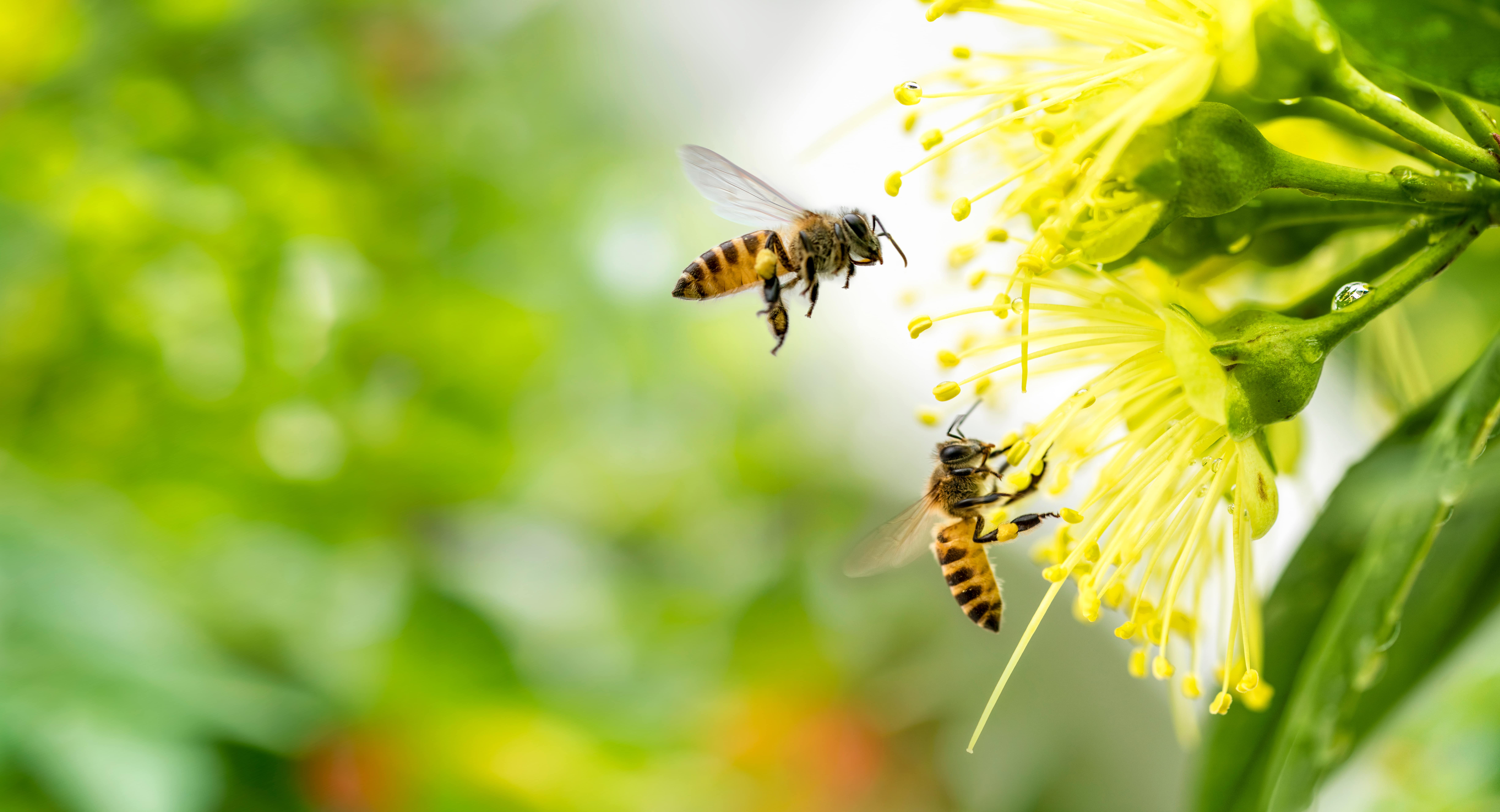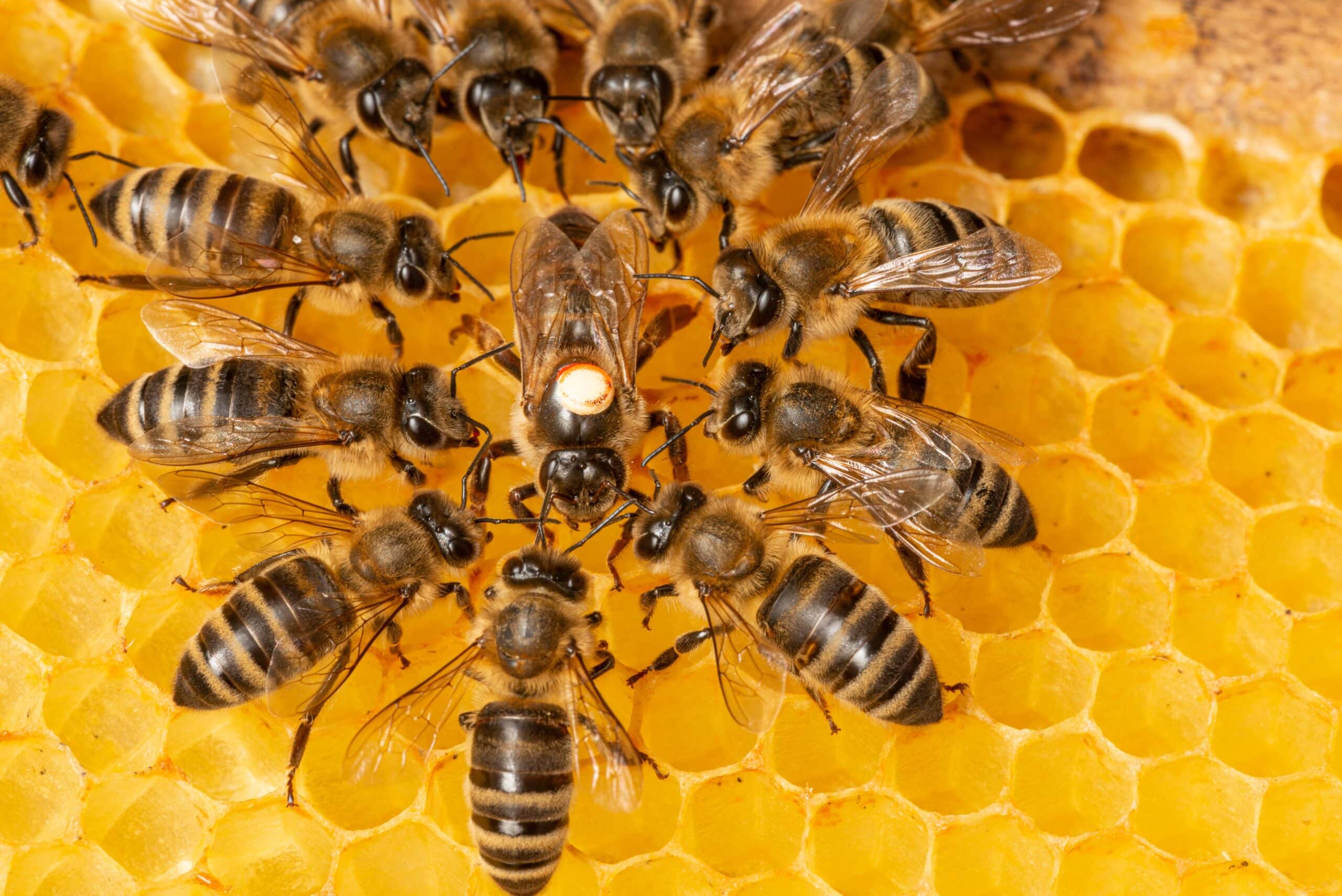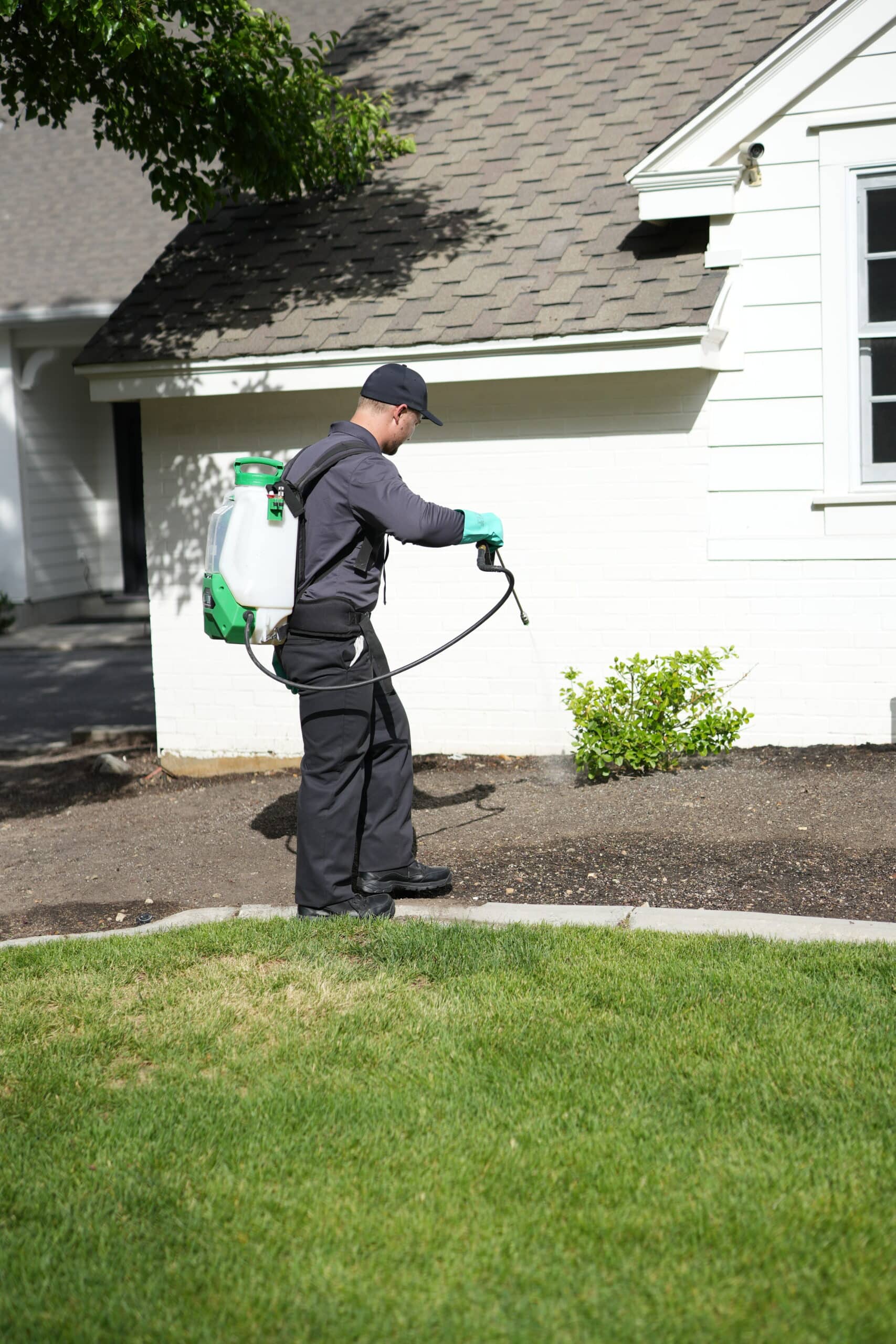Bee Pest Control
hawx is always reliable. always innovative.
20,000+ 5-STAR REVIEWS
“Connors Trader went the extra mile to make sure he listened to our needs regarding the ant problem we had.”
- Larry
“He sprayed indoors and out, swept my eaves for spider webs and took care of a couple of wasp nests.”
- Rick
“He even sprayed on my deck, which no one else has done.”
- Sue
The Importance of Bees (And Should You Get Rid of Them?)
Get $150 Off Bee Service

Bees are extremely helpful to the environment as pollinators. Bees, butterflies, and other insects pollinate the majority of the world’s plants and are essential to crop yields and keeping our ecosystems balanced. So does that make it OK to remove a beehive from your yard?
While it’s good to let bees follow their natural process, there are times when they get too close to homes and property, threatening attacks to our families and pets. Learn more about how bees live, what they eat, and how bees can be safely removed.
All about bees
Bees have six legs with two pairs of transparent wings. Bees also have antennae that are sensory organs, cluing them in to the world around them. Bees only sting when threatened. While about 5% of people may experience allergic reactions to bee stings, the vast majority are unaffected by bee stings.
What are the differences between bees and wasps?
Bees are flying, pollinating insects that are related to wasps. A significant difference between the two is their feeding preference, which actually creates slightly different physical developments in these two insects. Bees feed on a mix of pollen and honey, which promotes the growth of sparse hairs that aids in pollination. Wasps tend to feed on other insects, which produces a different kind of hair on their bodies that aren’t as good at pollination.
Where Do Bees Live?
Like many other insects, bees can be found throughout the world (except Antarctica). In North America, there are over 4,000 different species of bees.
Here is a brief list of common bees in North America that you may encounter:
- Sweat bees: Attracted to the salt in sweat; they have a metallic sheen on their bodies
- Bumble bees: Bigger “fluffy” pollinators
- Long-horned bees: Have long antennas that give them their name
- Miner bees: Solitary, small bees, also known as “chimney bees”
- Carpenter bees: Solitary bees that like to bore into wood to nest
What Do Honey Bees Eat?
Honey bees’ primary food source is also what makes them great pollinators—they’re drawn to a mix of pollen and nectar and, as they hop from flower to flower, the pollen that sticks to their tiny hairs gets spread.
As much as 80% of plants are pollinated by bees. Without bees, the world would experience severe famine and ecosystem imbalances, which is why it’s so alarming that bee populations are dying off in certain parts of the world due to parasites, pesticides, viruses & bacterial infections, and the lack of diverse sources of pollen.
What Is the Lifespan of a Bee?
Queen bees have a longer lifespan so they can lay eggs and keep the hive going. Queen honey bees live an average of 1–2 years. Worker bees live only about a month long in the summer; however, they can live longer over the winter season (150–200 days) because they are in a state of hibernation. This social hierarchy is similar to countless other insects and pests.

Why Do Some Bees Make Honey?
Like many animals and insects, bees hibernate for the winter. Some bees make honey and store it in their hives as a high-sugar winter diet since they can’t fly from flower to flower for nectar.
How To Deal with a Beehive At Your House
Calling a professional is really the only way to handle a beehive (especially if it’s nestled inside the walls of your home or somewhere else equally hard to reach). The best way to locate a nest is to watch where the bees are flying and see if they always go to the same spot. If you see them entering around a crack in your siding or other building material, the bees may have made their way into the walls of your home.
From there, a local beekeeper that specializes in ethical bee treatment will work to remove the queen bee and other bees to relocate them before clearing your house of the abandoned nest. If you’re not sure what type of bees you have, call a pest control company to inspect the hive and guide you on next steps that are safe for the bees and for you.
If you see swarming bees where there weren’t any before, keep in mind that they may be migrating and just stopping along the way. The best thing to do in this situation is to be patient and wait it out. They may stay a day or two and then move on to their permanent home.
No matter what you do, don’t try to attack the hive alone. If you receive multiple stings, you could get possibly ill from the heightened toxic load on your system. Instead, let the pros handle your bee infestation ethically and calmly so you can enjoy your home and yard without any worry.
Get $150 Off Bee Service



